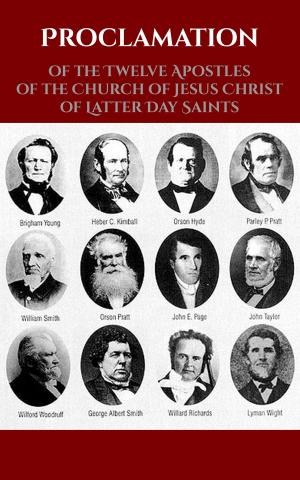Calvin and Servetus: The Reformers Share in the Trial of Michael Servetus
Historically Ascertained from the French: with notes and additions
Nonfiction, Religion & Spirituality, Christianity, Church, Church History| Author: | W. K. Tweedie | ISBN: | 1230001907193 |
| Publisher: | CrossReach Publications | Publication: | September 19, 2017 |
| Imprint: | Language: | English |
| Author: | W. K. Tweedie |
| ISBN: | 1230001907193 |
| Publisher: | CrossReach Publications |
| Publication: | September 19, 2017 |
| Imprint: | |
| Language: | English |
Perhaps no criminal trial ever gave occasion to such acrimonious censures as that of Michael Servetus. Men of every rank, and every variety of opinion, have long united in condemning the transaction; and perhaps more has been argued or declaimed upon this single topic than upon all the hecatombs of victims offered by the persecuting spirit of Popery.
Yet, after all, much ignorance still prevails regarding the true history and character of the trial. De la Roche in the beginning of the last century, J. L. de Mosheim and Alwoerden about the middle of it, Sennebier towards its close, M. Fleury in 1835, M. Trechsel of Berne in 1839, M. de Valayre in 1842, as well as many others, have professed to give lives of Servetus, or narratives of his trial. Some of these were dictated by avowed hostility to Calvin, or antipathy to the theological opinions which he embraced and advocated, while all of them were imperfect, because the documentary evidence which the authors had before them was not complete. But in the course of 1844, M. A. Rilliet of Geneva published there a brochure upon the subject, in which he has, with great painstaking and impartiality, concentrated the light of history, made yet more clear by that of documents hitherto unexamined or unpublished. The Registers of the City of Geneva were long supposed to be lost. More recently, however, they have been discovered to be still extant; and Rilliet has availed himself of all that they contain to place the trial of Servetus in its true, that is, its historical, light, divested at once of the exaggerations of ignorance and the bitterness of partisanship.
Without sanctioning every sentiment of Rilliet, it is, perhaps, not too much to say, that the world now knows all that ever can be known concerning the trial of Servetus, till the day when the secrets of all hearts shall be laid bare. The impartial student of history has now an opportunity of ascertaining, from unquestionable and authentic sources, all the circumstances connected with that humbling event. The archives of Geneva have been ransacked, and their contents analyzed. The letters of contemporaries, printed and in MS., have been examined. The parties which then contended for power in Geneva—its ancient forms of justice—its magistrates and ministers—the very documents employed in the trial, as they were written out while it was in progress—the Reformed Churches of Switzerland, and other bodies, both friendly and hostile to the Reformation, have all been cited by Rilliet to give evidence on this long contested topic; and, with rather a leaning to Servetus, he has brought into a short compass all that can, perhaps, ever be ascertained regarding this memorable trial on this side the judgment-day.
Perhaps no criminal trial ever gave occasion to such acrimonious censures as that of Michael Servetus. Men of every rank, and every variety of opinion, have long united in condemning the transaction; and perhaps more has been argued or declaimed upon this single topic than upon all the hecatombs of victims offered by the persecuting spirit of Popery.
Yet, after all, much ignorance still prevails regarding the true history and character of the trial. De la Roche in the beginning of the last century, J. L. de Mosheim and Alwoerden about the middle of it, Sennebier towards its close, M. Fleury in 1835, M. Trechsel of Berne in 1839, M. de Valayre in 1842, as well as many others, have professed to give lives of Servetus, or narratives of his trial. Some of these were dictated by avowed hostility to Calvin, or antipathy to the theological opinions which he embraced and advocated, while all of them were imperfect, because the documentary evidence which the authors had before them was not complete. But in the course of 1844, M. A. Rilliet of Geneva published there a brochure upon the subject, in which he has, with great painstaking and impartiality, concentrated the light of history, made yet more clear by that of documents hitherto unexamined or unpublished. The Registers of the City of Geneva were long supposed to be lost. More recently, however, they have been discovered to be still extant; and Rilliet has availed himself of all that they contain to place the trial of Servetus in its true, that is, its historical, light, divested at once of the exaggerations of ignorance and the bitterness of partisanship.
Without sanctioning every sentiment of Rilliet, it is, perhaps, not too much to say, that the world now knows all that ever can be known concerning the trial of Servetus, till the day when the secrets of all hearts shall be laid bare. The impartial student of history has now an opportunity of ascertaining, from unquestionable and authentic sources, all the circumstances connected with that humbling event. The archives of Geneva have been ransacked, and their contents analyzed. The letters of contemporaries, printed and in MS., have been examined. The parties which then contended for power in Geneva—its ancient forms of justice—its magistrates and ministers—the very documents employed in the trial, as they were written out while it was in progress—the Reformed Churches of Switzerland, and other bodies, both friendly and hostile to the Reformation, have all been cited by Rilliet to give evidence on this long contested topic; and, with rather a leaning to Servetus, he has brought into a short compass all that can, perhaps, ever be ascertained regarding this memorable trial on this side the judgment-day.















